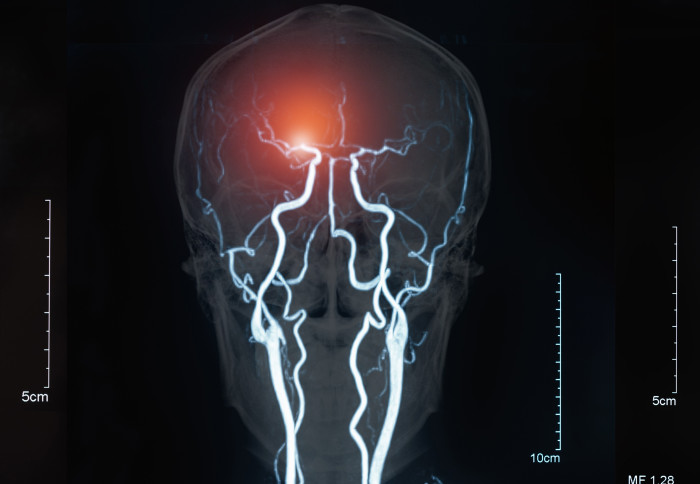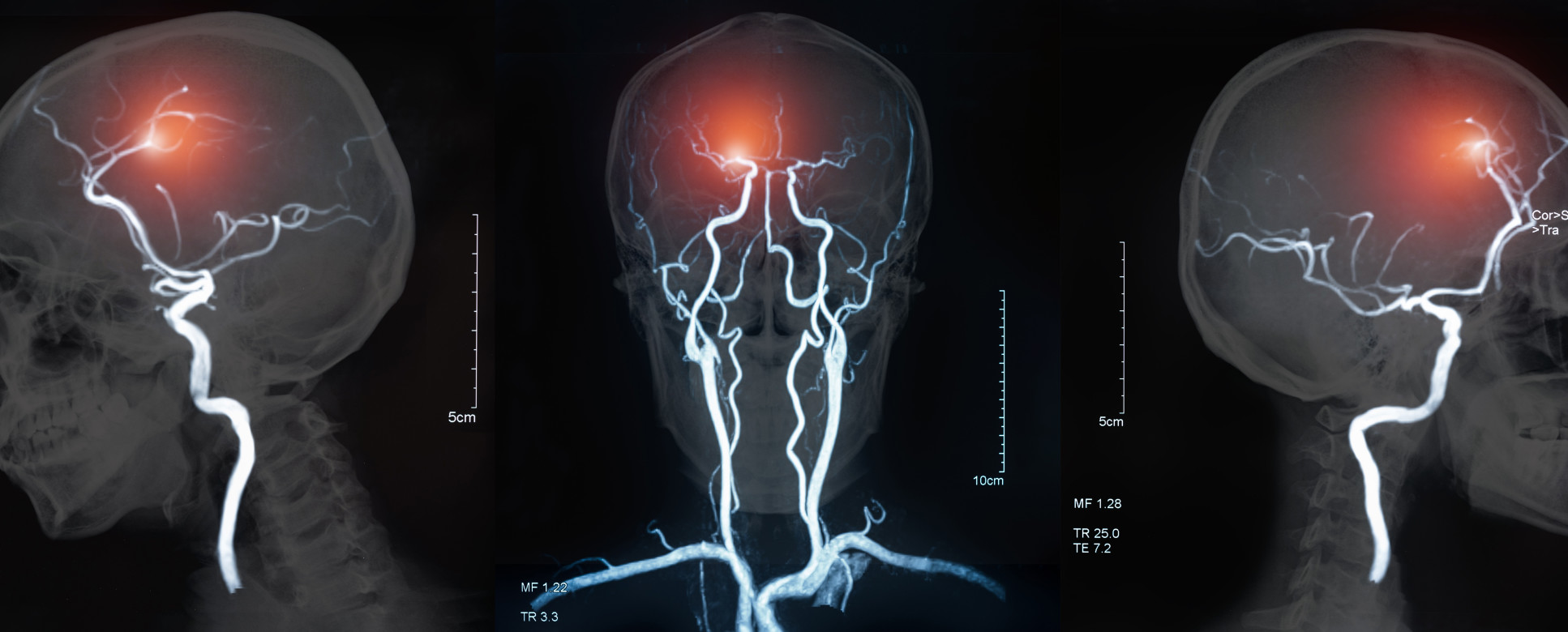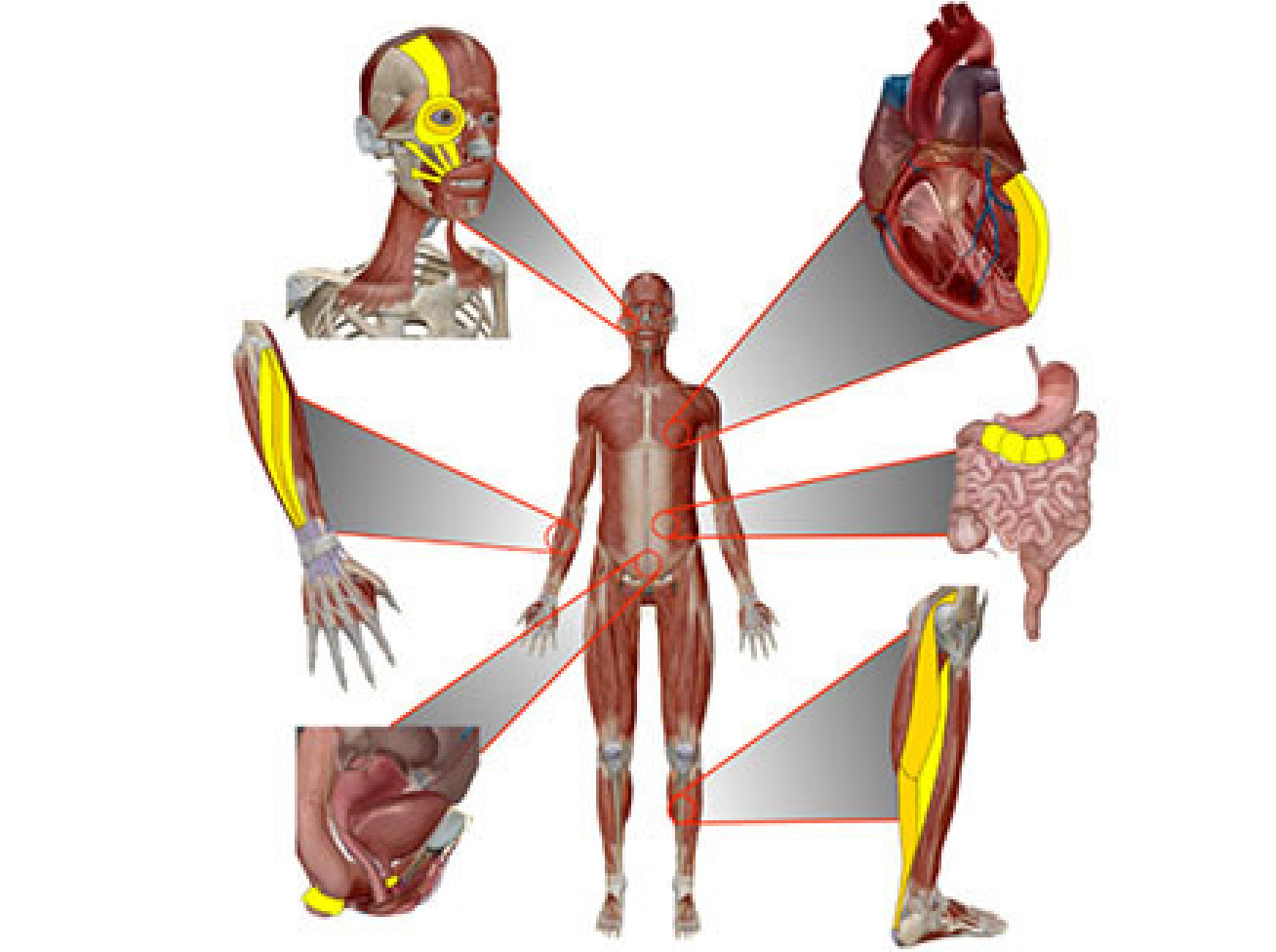AI-based brain monitoring and robotic muscle projects win £11.5m EPSRC boost

Two Imperial College London projects have won a total of £11.5 million to transform healthcare technologies by 2050.
The UKRI EPSRC Transformative Healthcare Technologies for 2050 funding aims to foster the development of revolutionary new technological approaches to transform care and treatments in the NHS by 2050.
£5.5m: AI-based brain monitoring for stroke and Parkinson’s
We hope our technology will provide a breakthrough in understanding, diagnosing, and treating stroke, Parkinson’s, and Alzheimer’s. Professor Dario Farina Department of Bioengineering
A new Imperial-led project will monitor the brain in a way never achieved before.
The project team, led by Professor Dario Farina at the Department of Bioengineering, will develop a new technology, known as Non-Invasive Single Neuron Electrical Monitoring (NISNEM), with the aim of helping scientists better understand neurological diseases like stroke and Parkinson’s.
The researchers hope the technology will enable new neurotechnology-based treatments that are non-invasive and more effective than current ones.
Current approaches to monitoring the brain, like using surgical implants, are invasive. However, NISNEM technology uses electrical signals recorded on the skin surface from extremely high-density electrode probes to create images of the brain, which AI algorithms then scan to find traces of individual neuron activities. These decoded neural activities could reveal signs of neurological impairments like stroke and Parkinson’s, and help drive brain-computer interfaces for assistance and therapy.
Stroke affects more than more than 100,000 people per year in the UK, and occurs when the supply of blood to the brain is reduced or blocked. It most commonly arises in the cerebral artery, which directly affects the motor cortex, and can cause substantial impairments in the motor abilities of patients affecting walking and speech.
The pioneering projects we are backing today will help modernise healthcare, improving all of our lives now and into the future. Amanda Solloway UK Science Minister
Parkinson’s disease affects 1 in 500 people, causing parts of the brain to become progressively damaged over many years. It develops when dopamine-producing cells in the brain stop working properly and are lost over time. This causes a lack of dopamine in the brain, which is important for movement and speech, and causes tremor, slowness of movement, and muscle stiffness.
Stroke and Parkinson’s are only two examples of the impairments targeted by the new NISNEM technology. The researchers hope the new technology will detect brain abnormalities to help early diagnosis of these progressive diseases as well as developing non-invasive treatments.
Professor Farina said: “The current inability to access single neuron activity in the brain not only limits our ability to understand and diagnose neurological conditions, but also prevents the broad adoption of neurotechnologies in healthcare. We hope our technology, funded by the EPSRC grant, will provide a breakthrough in understanding, diagnosing, and treating increasingly prevalent neurological conditions, such as stroke, Parkinson’s disease, and Alzheimer’s.”

£6m: Robotic muscles project
emPOWER will explore how artificial muscles could radically transform treatment options in the future and effectively turn back the body clock. Professor Molly Stevens Department of Materials
A University of Bristol-led project involving Imperial’s Professor Molly Stevens aims to develop artificial robotic muscular assistance to help restore strength in people who have lost muscle capability. This could include patients who have suffered a stroke or are living with degenerative diseases such as sarcopenia and muscular dystrophy.
Using these highly targeted robotics could help overcome the limitations of current wearable assistive technologies in regenerative medicine. Often, these technologies can be bulky and uncomfortable to wear, and can require two people to put on and take off. Users can also find the movements too slow.

Through using robots to boost the performance of such technologies, the project, called emPOWER, could provide life-changing benefits for sufferers by restoring their confidence, independence and quality of life - all while reducing the cost to the NHS.
Co-investigator Professor Stevens of the Department of Materials said: “Loss of strength and muscle wastage is currently an unenviable part of getting older and has a significant impact on health and quality of life. emPOWER will explore how artificial muscles could radically transform treatment options in the future and effectively turn back the body clock.”
emPOWER is led by Professor Jonathan Rossiter at Bristol, in partnership with Imperial, UCL and the NIHR Devices for Dignity MedTech Co-operative, hosted by Sheffield Teaching Hospitals Foundation Trust.
Science minister Amanda Solloway announced the funding as part of her keynote speech at London Tech Week 2020.
She said: “The pioneering projects we are backing today will help modernise healthcare, improving all of our lives now and into the future. This announcement is part of our ambitious R&D Roadmap and underlines our commitment to back our incredible scientists and researchers and invest in ground-breaking research to keep the UK ahead in cutting-edge discoveries.”
Article supporters
Article text (excluding photos or graphics) © Imperial College London.
Photos and graphics subject to third party copyright used with permission or © Imperial College London.
Reporter
Caroline Brogan
Communications Division